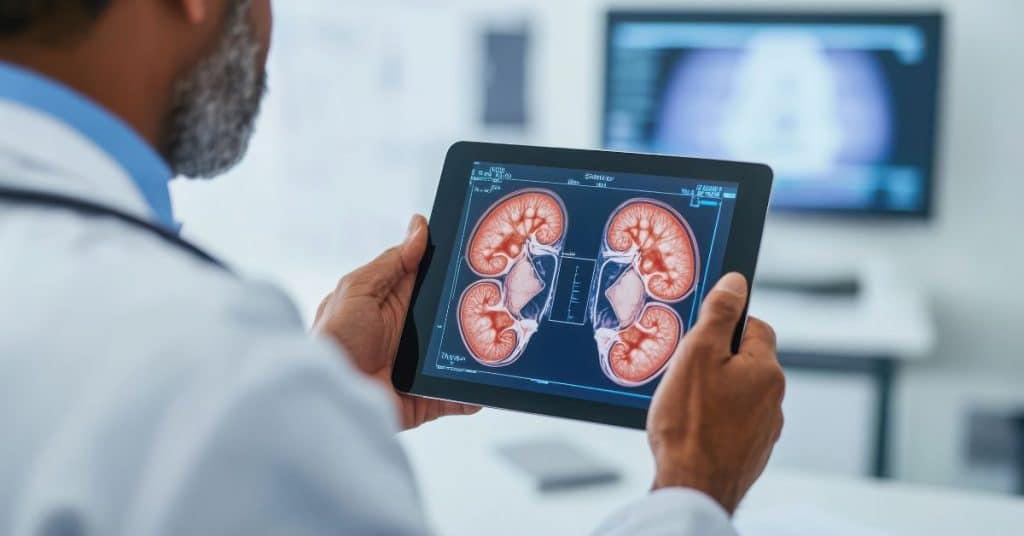

I am struck by the prevalence of kidney disease and its deep connection with nutrition. When I wrote this article, more than one in ten Americans had chronic kidney disease (CKD).[1] Today, the Centers for Disease Control and Prevention estimate a prevalence greater than one in seven US adults (more than 35 million people).[2] What is even more shocking is that the vast majority of those individuals—up to 90 percent of them—do not realize they have CKD, including as much as one-third of adults with severe CKD.
Perhaps no organ has been more linked to nutrition than the kidney. Awareness of the connection between kidney function and our dietary choices goes back well over 100 years, even among physicians of the medical establishment. In 1836, a series of case reports from Dr. Bright, published in Guy’s Hospital Reports, established that those who died from kidney disease had protein in their urine.[3] Throughout the next century, experimental animal studies established that when the kidney’s functional capacity was reduced by surgery, the amount of protein consumed dramatically affected the growth and mass of the remaining functional kidney.[4] It was known as standard treatment for kidney disease in 1948 to restrict protein intake, and by 1981, a seminal paper established that excessive protein intake resulted in damaging structural changes in the kidney.[5][6] (The above statements apply to cases of kidney disease that have not progressed to the cessation of function. Protein and nutritional recommendations are different for those on dialysis.)
The major kidney societies of the world still recommend that patients with predialysis kidney disease take steps to not overconsume protein.[7] The National Kidney Foundation, for example, recommends 0.6 grams of protein per kilogram of body weight; that’s half as much as the average American consumes and less than one-third of what one might consume on a high-protein Atkins diet.[8] Further, there is evidence to suggest that CKD patients should consider not only the total amount but also the source of their protein: whole plant protein sources may be protective for numerous reasons (e.g., they have more fiber, are less fatty, and can counteract inflammation and metabolic acidosis), and animal proteins may be more damaging.[9][10] While more research is always useful for establishing the details of a dietary effect like this, the results we already have are consistent with results found for the whole web of associated diseases and conditions.
Learn more about treating chronic kidney disease with nutrition from our published case report.[11] Learn more about the connection between nutrition and other chronic diseases in CNS’s Plant-Based Nutrition Certificate.
Copyright 2026 Center for Nutrition Studies. All rights reserved.